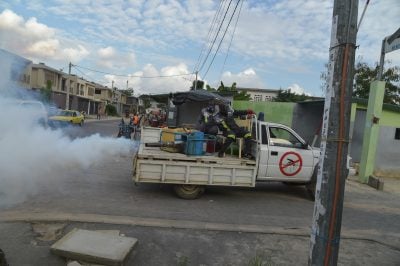“My education journey started in 1996 at Bungo Primary School in Morogoro, Tanzania and then in 2003, I joined the Kilakala Secondary School, also in Morogoro, which is a special school for talented students. I did both ordinary level and advanced level.
“I went to Tumaini University in Iringa where I studied Information Technology and later I joined the Nelson Mandela African Institution of Science and Technology, where I obtained a PhD in Information and Communication Science and Engineering.
“My greatest inspirations are from women who are doing well in science – particularly astronauts, neurosurgeons and women who work in machine learning and artificial intelligence.
“There is one person who I consider my role model, a Professor at Stanford University in the US, called Fei-Fei Li, who works on AI and machine learning. (Machine learning is the study of computer algorithms that improve automatically through experience.
It is seen as a part of artificial intelligence.)
“It was great to see three women among the winners of this year’s Nobel Prizes in Chemistry and Physics. I have always been encouraged to study sciences and, honestly, I have not experienced any discrimination or glass ceilings. The Nobel Prize accolade will serve as an inspiration and encouragement for all young girls and women out there and show that we can shine in science.
“My PhD research focused on addressing student drop-out in secondary schools in Tanzania using a machine learning model, an application called BakiShule.
“It was developed purposely to help education stakeholders intervene early to reduce drop-out rates. We looked at a number of factors and data sets, and there are six that stand out: age, gender, parent engagement (both with the school and also in terms of homework and reading), and income measured through number of meals per day. We can quickly identify those students most-at-risk and as a result take remedial action.
“The Covid-19 pandemic affected my research experiments since the university was closed and I had no access to the computer lab to run my models for almost three months.
“But thanks to technology, I was able to collaborate more closely with friends and colleagues in Uganda, Kenya and elsewhere. We actually managed to write a big proposal for a research project and raise funding. So it shows you also the power of collaboration and that will lead to greater sharing of information and knowledge.”
Want to continue reading? Subscribe today.
You've read all your free articles for this month! Subscribe now to enjoy full access to our content.
Digital Monthly
£8.00 / month
Receive full unlimited access to our articles, opinions, podcasts and more.
Digital Yearly
£70.00 / year
Our best value offer - save £26 and gain access to all of our digital content for an entire year!
 Sign in with Google
Sign in with Google 



